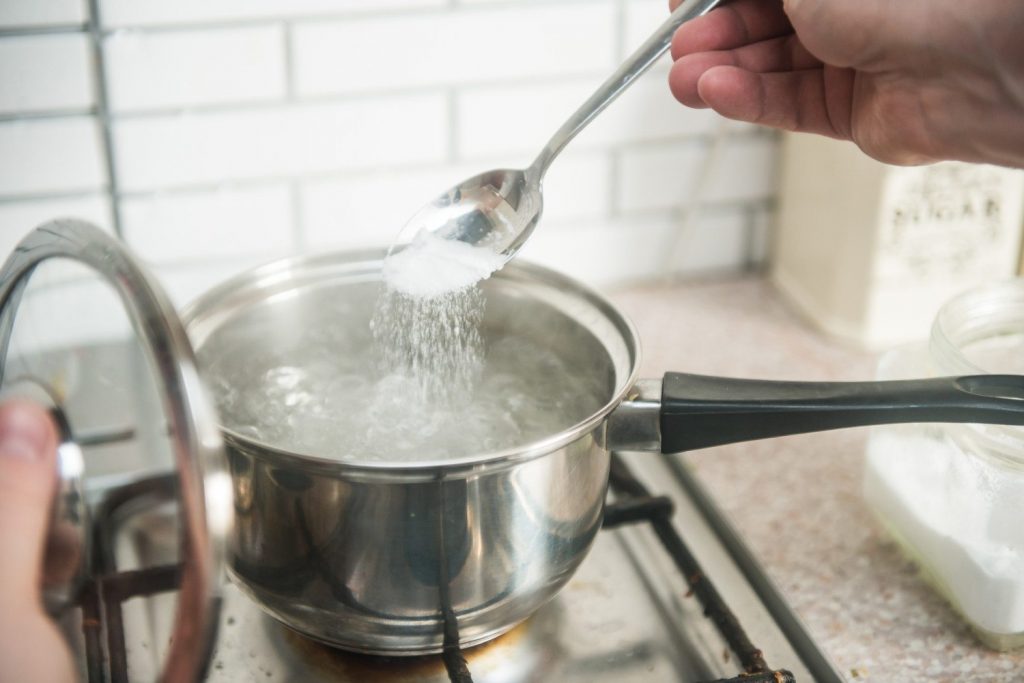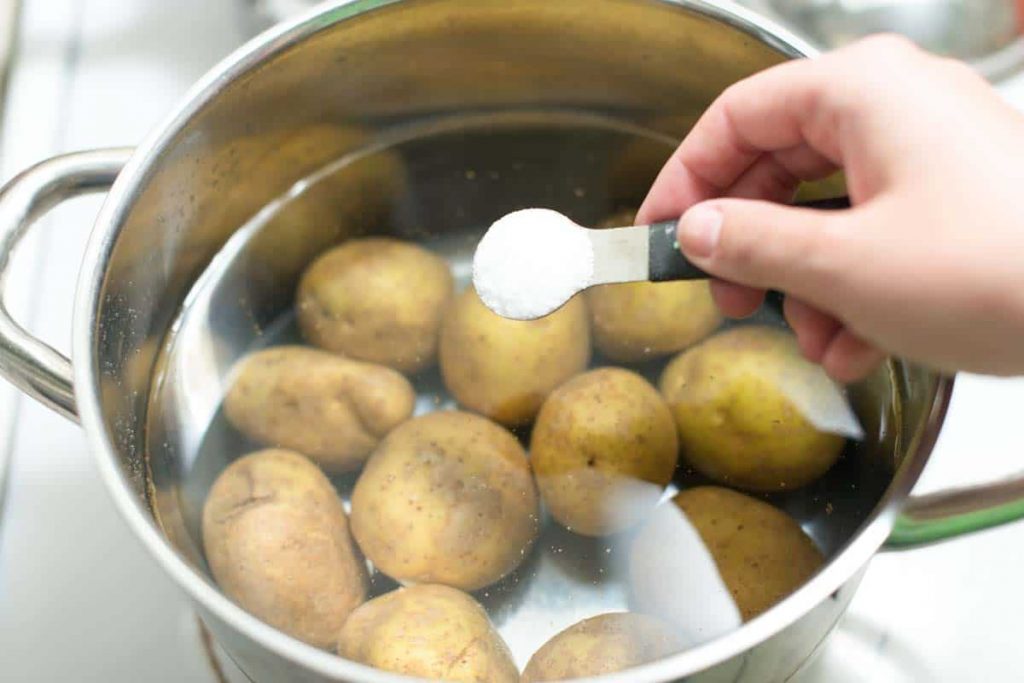The Amount Of Salt Required In Cooking Water
Salt is essential in the preparation of our meals. However, do not put too much salt in the cooking water. If you put a lot of salt when cooking rice, you will be creating a recipe for disaster. The rice will be too salty for your taste buds. Therefore, to put salt or not to put salt? That is the question.

Yes, you can put salt in your cooking water. But the ingredient you are cooking will determine the quantity of salt to be put in the cooking water. If the ingredient has a greater absorption capacity, you must add just a pinch of salt to the water. For instance, if you are cooking peeled potatoes which are porous or dried beans that require to be boiled for a long period, they tend to absorb a lot of water. Therefore, as a precautionary measure, you must add a very small amount of salt to the cooking water. The same applies when cooking rice or quinoa.

When you are cooking an ingredient that does not absorb much water, like unpeeled potatoes, you can add salt to the cooking water. Also, when cooking an ingredient put for a short time in the water, like pasta, the cooking water can be salty since the food will not absorb much water.
Chef Sohui Kim of Insa in NYC emphasizes that water for cooking pasta does not necessarily have to taste like seawater. However, you must be able to taste the salt. After putting salt in the water, get hold of your spoon. Then taste the cooking water before throwing in the pasta.
